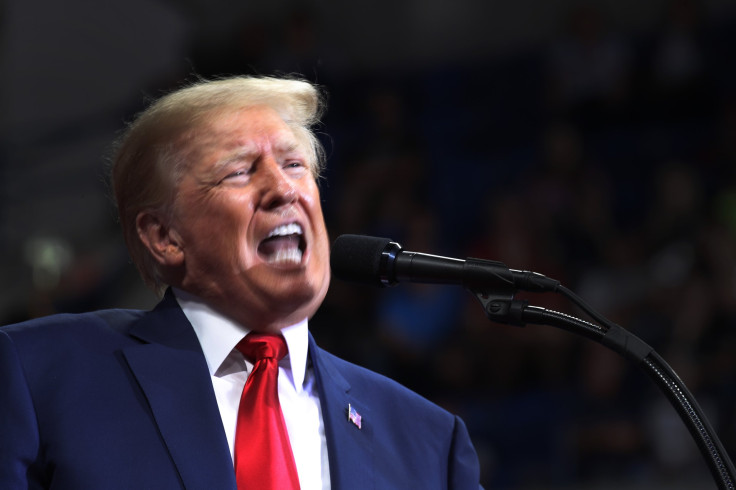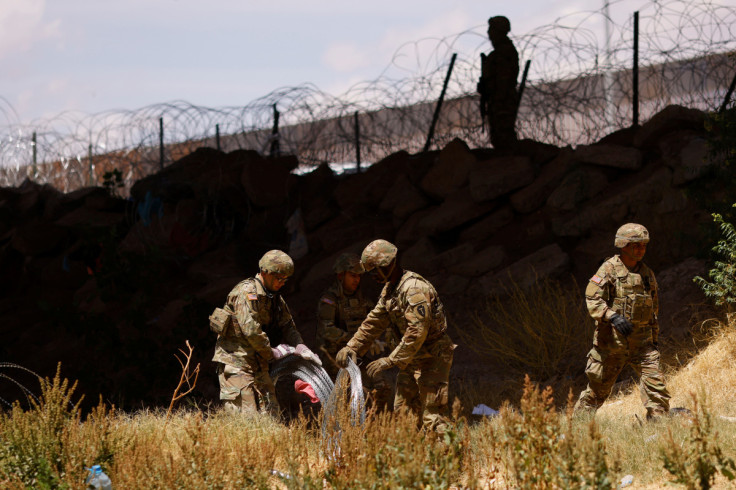
Former President Donald Trump has made border security the almost-exclusive talking point of his presidential campaign, chastising the Biden administration for what he says is insufficient action to stem the flow of migration to the country.
Trump has been pitching hard line measures if he gets elected as president in this year's elections and, according to a report by Axios, he would seek to implement them using a range of tools that include "obscure laws, military funds and law enforcement officers from all levels of government."
Concretely, Trump would seek to mobilize several government agencies —ICE, FBI, DEA, federal prosecutors, National Guard members and even state and local law enforcement— to conduct the deportation of millions of undocumented people in the country.
An estimated 10.5 million unauthorized immigrants were in the U.S. in 2021, a slight increase from 10.2 million in 2019 according to a recent report by the Pew Research Center.
The report does not reflect changes in migrant apprehensions and expulsions along the U.S.-Mexico border, which began to increase in March 2021 and have since reached historic highs, but does paint a picture of the amount of people who could potentially be affected by these measures.
Almost 40% of all undocumented are of Mexican nationality, while some 2.2 million are from Central America, meaning that at least 60% of the potentially affected are from Latino origin.
Concretely, a Trump administration would seek to expand fast-track deportations. The measure, currently reserved for recent crossers encountered near the border, would apply to "anyone who illegally crossed the border and couldn't prove they'd been living in the U.S. for more than two years."
Moreover, Trump would resort to an "obscure section of the 1798 Alien and Sedition Acts" to curtail multi-step deportation processes and proceed with the immediate expulsion of migrants with criminal histories. He would also have the military build massive facilities to hold people awaiting deportation.
The report also focuses on the hundreds of thousands who have been allowed into the country under the use of "parole," which guarantees protection for two years. A Trump administration could not renew the program and deport those whose term expires soon.
Such an approach would likely trigger harsh clashes at a domestic level, with several organizations seeking to fight back. Democratic-led states, well-organized Latino advocacy groups and "sanctuary cities would be among the "resistance," Axios says.
However, Trump, who has repeatedly said that immigrants are "poisoning the blood of our country," would have his share of institutional supporters. Among them is Texas governor Greg Abbott, who has been directing National Guard troops to erect razor wire along the border, cracking down on migration unilaterally and sparking a clash with the Biden administration, as the federal government has the sole rule to implement border-related measures.

The federal government, on its end, is looking into actions of its own after Republicans backed from a bipartisan border security project. Biden, who directly accused Trump of pressuring allies into tanking the deal for political gain, is considering implementing executive actions to stem the flow of migration.
He has gone on the offensive ever since it became clear that the border security bill wouldn't be passed, singling out former President Donald Trump as the main responsible for blocking what he said would have been "the toughest, fairest law." He added that Trump would "rather weaponize this issue than actually solve it.
Officials told NBC that even if the measures do not appear to be decisive in the goal, doing nothing is not an option. They did clarify that any action taken can't be compared to what it could have been done had Congress reached a deal.
Even though the president could face some backlash within his own party for implementing the measures, the outlet said, other factions could welcome it, both for the political effect and the one on the ground, especially Democratic mayors in communities near the southern border.
© 2024 Latin Times. All rights reserved. Do not reproduce without permission.







